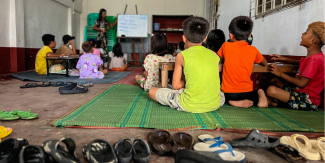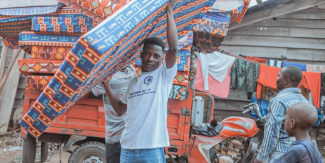July 3, 2025 ~ AMY HECKMAN
Access to clean water and improved sanitation can mean the difference between health and disease, thriving and struggling, and children staying in school or falling behind. So, what options exist for communities where every resident is affected by the lack of clean water or sanitation facilities? Too often, the answer is: none.
In India, this is a reality in many villages, including those located near South India Biblical Seminary. “These communities [suffered with] water scarcity and lack of sanitation and waste management systems,” explained a church leader.
But now, a different answer is beginning to emerge for these villages. Through a transformative WASH (water access, sanitation, and hygiene) project launched by the Church of the Nazarene and Nazarene Compassionate Ministries in India, long-standing challenges are being overcome one by one. The key? A combination of trained guides and engaged community members.
Beginning in the fall of 2024, a WASH project team was assembled to provide care to villages around the seminary. The team coordinates with the pastors of local Nazarene churches and village officials in each location, and includes volunteers from the representative churches. Extensive training sessions ensured each team member was equipped to help manage and guide the project activities.

The team focused on improving sanitation practices in three of the five villages. To address ongoing issues with trash disposal, volunteers constructed new waste bins for the communities to use. Community awareness sessions provided residents with information about the health impacts of poor sanitation, and residents provided valuable feedback to the volunteers. Members of the communities willingly prepared space for the waste bins, and residents haven’t held back from expressing their feelings regarding the bins.
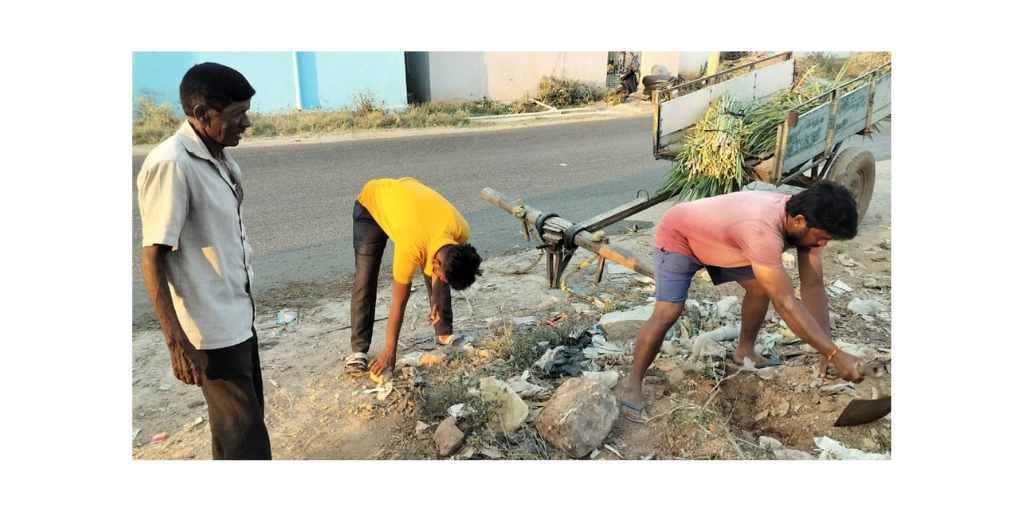
“We are so happy with the installation of garbage bins,” shared Vennila, a local resident. “Before, we didn’t know where to throw our waste. Now our village is cleaner, and our health is better.”
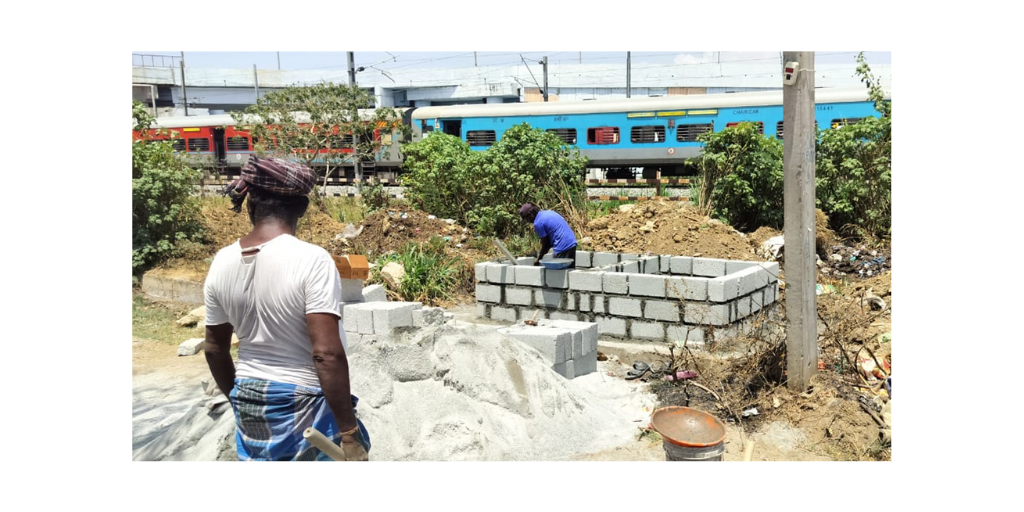
Once the bins were installed, village officials worked with team members to develop waste management plans, one of which included hiring a local resident to oversee the regular emptying of bins.
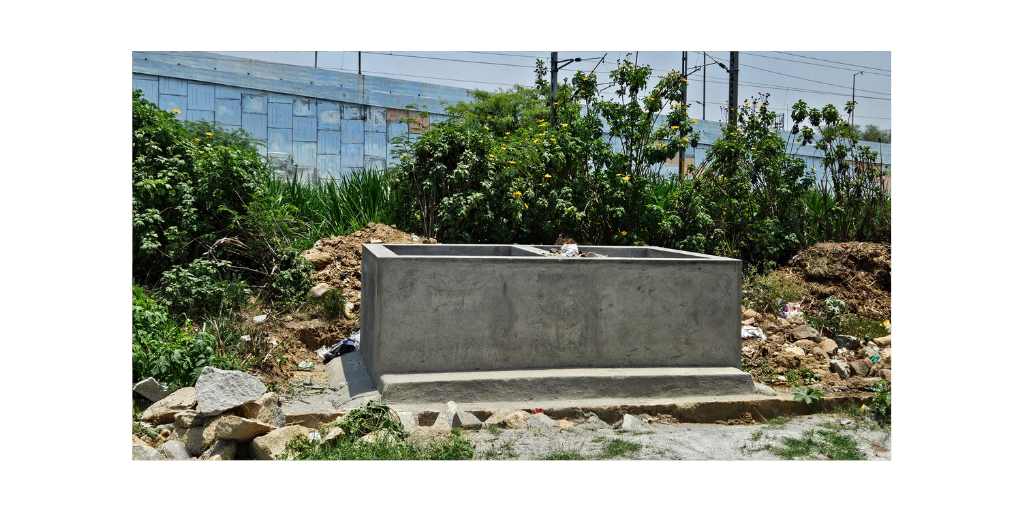
“Earlier, no one really paid attention to hygiene in our village,” shared Keerthi, another community member. “But after the awareness programs and the placement of bins across different areas, things have changed. People are using the bins regularly, and since they are placed close to our homes, it’s much easier to keep our surroundings clean.”
“These garbage bins have been very helpful for our village,” added one older resident.
The waste bin installation has caught on in the local area—after officials in the larger district saw this improvement, they recommended the idea to other villages. Ten additional communities are now copying this approach to waste management.
Another village was targeted for efforts that would reduce flooding during the rainy season. More awareness sessions provided education on best practices for waste disposal, and community members jumped in to clean street drainage ditches. The project also funded hiring local residents to help complete this activity.

Venkateshappa lives adjacent to the street drains in this village. Before the cleaning, the area in front of his house was constantly dirty. Stagnant water had become a breeding ground for mosquitoes, causing concern for his family’s health. After the ditches were cleared, he noticed an immediate change.
“The area is clean, the insects are gone, and our health seems better,” he reported.
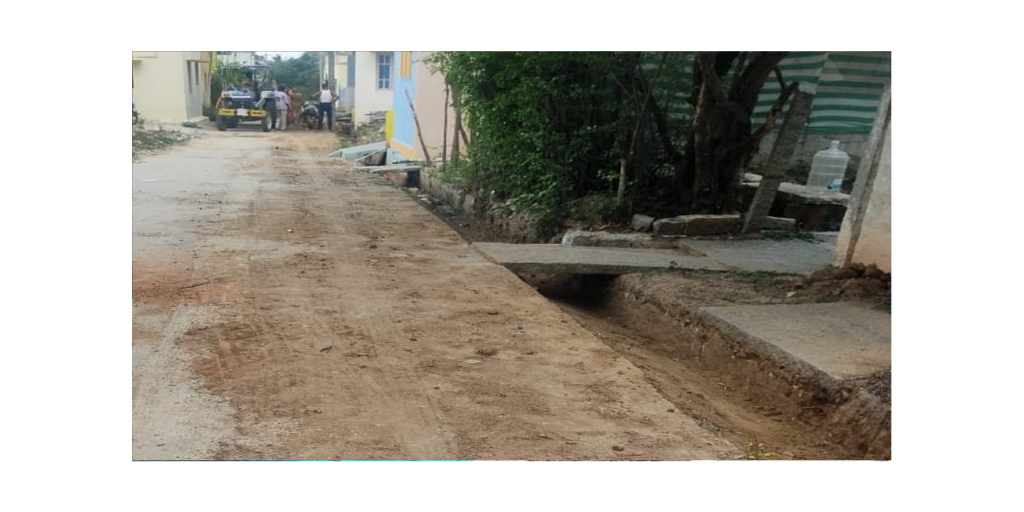
Handwashing campaigns were launched across each village, instilling the importance of personal hygiene and its link to the health and well-being of children and their families. Local schools partnered with project volunteers to host awareness sessions. According to project leaders, approximately 30 to 45 residents attended the sessions in each village.
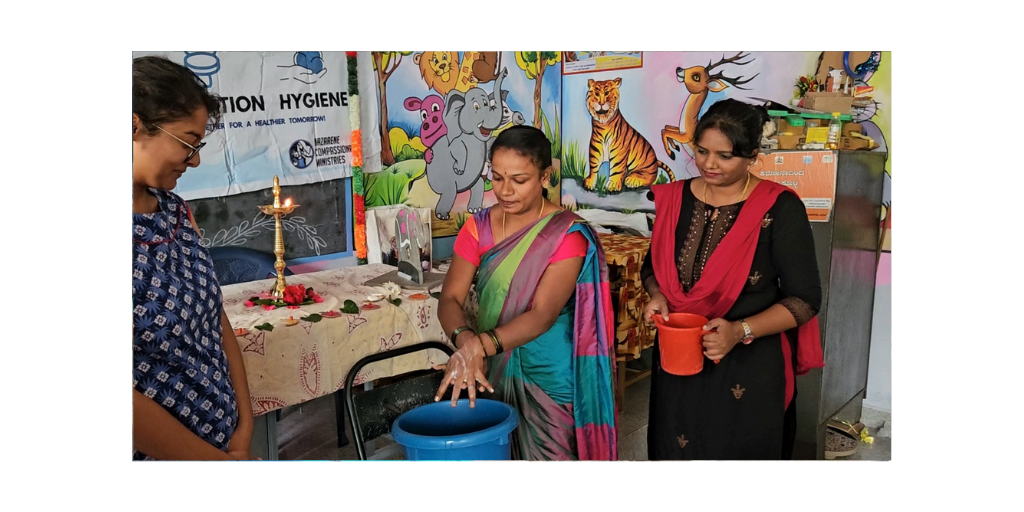

Local Nazarene churches have been the vital link between the project and the villages. Pastors and congregation members have served as bridges, explaining the activities and awareness sessions to their neighbors and sharing each community’s unique context with the project leaders. Churches hosted team meetings as well as sessions for residents, deepening the church’s influence in their community. In addition, pastors helped identify local laborers to hire to complete larger projects.
“Because church leaders and members are often influential figures within the village, their visible and active participation inspired confidence and ownership within the broader community,” shared one project leader.
Seemingly simple actions like installing garbage bins and cleaning blocked drains have brought cleaner surroundings to these villages, improving hygiene and reducing health risks. With each activity, the project inspires more people to work for improved sanitation, leading to true transformation. This summer, activities will include more drainage improvements and handwashing sessions, along with the installation of an overhead water tank.
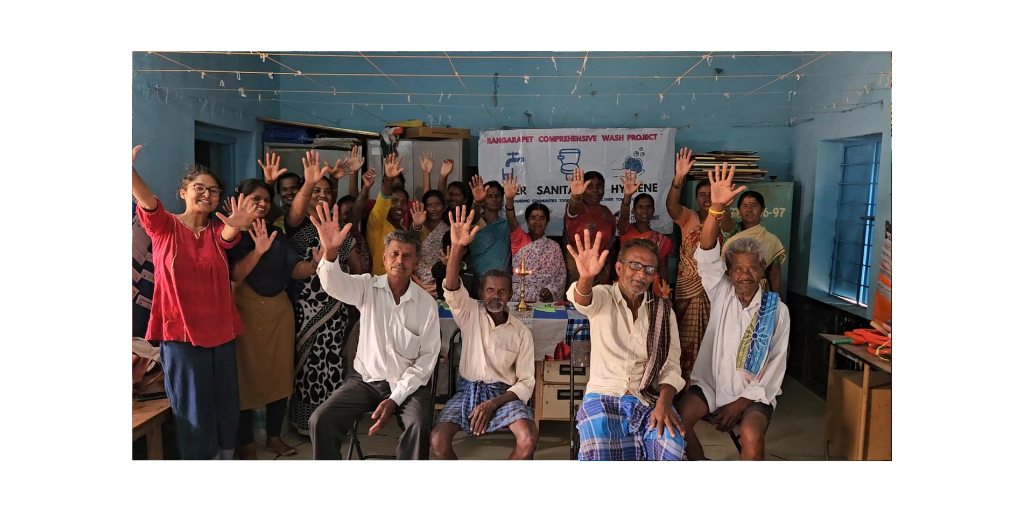
Even as new activities are added to the project, the leaders have no plans to change their model of empowering local residents.
“What we are witnessing is not just improved sanitation,” said the leader, “but the awakening of empowered communities who are leading their own transformation. The WASH project is not just a set of activities or targets; it is an act of service. [We] serve with compassion, walk alongside communities, and witness transformation together.”

